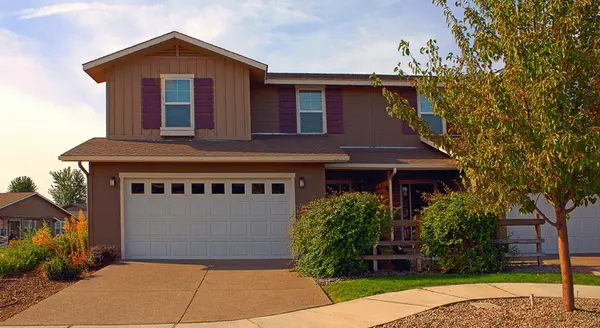
Is Wall Street Taking Over the Housing Market?
Let’s face it – buying a home right now isn’t easy. You’re scrolling through endless listings, racing to open houses, and possibly losing out to stronger offers. Along the way, you might’ve heard that big Wall Street investors are snapping up all the homes, making it harder for regular buyers. But here’s the truth: that’s largely a myth. While investors do play a role in the market, Redfin data shows they make up a relatively small portion. Here’s what this means: the vast majority of homes—about five out of six—are being purchased by everyday buyers like you, not large-scale investors. So, before you feel discouraged, let’s dig into what’s really happening. You might be surprised to learn that Wall Street isn’t the competition you think it is. Most Investors Are Small-Scale Owners Contrary to popular belief, most investors aren’t massive corporations. In fact, many are your neighbors. According to a recent report from CoreLogic, the majority of investors are small-scale, owning fewer than 10 properties. Think of your neighbor who rents out a second home or owns a vacation property—not a giant company with unlimited resources. Large-scale investors, those owning thousands of properties, account for only about 1% of the market. Most properties are still in the hands of individuals or smaller investors, not Wall Street. Investor Activity Is Declining Not only are most investors small, but overall investor activity is dropping. CoreLogic reports: “Investors made 80,000 purchases in June 2024, compared to 112,000 in June 2023—a nearly 50% decline from the peak of 149,000 purchases in June 2021.” Looking ahead, CoreLogic predicts this downward trend will continue into 2025. If it feels like you’re competing with investors, remember that their activity is slowing, not ramping up. This could mean fewer hurdles in your path to homeownership. Bottom Line The notion that Wall Street is buying up all the homes is mostly a myth. The majority of investors are small-scale, and their share of home purchases is steadily declining—so you can cross this concern off your list. If you have questions about the housing market, reach out to a local real estate agent. They can provide clarity and help you understand what’s truly happening.

Overcoming the Top 2 Concerns About Selling Your Home
Wondering If now’s the right time to sell? Address these two common concerns If you’re on the fence about selling your house, it’s likely because you have some unanswered questions. Maybe you’re unsure if moving makes sense in today’s market, or you’re worried about finding a home that fits your needs. Let’s break down these concerns and tackle them head-on. Is It a Good Idea to Move Right Now? Many homeowners hesitate to sell because of concerns about taking on a higher mortgage rate for their next home. However, the equity you’ve built in your current home could make your move more manageable than you think. Equity is the difference between your home’s market value and what you still owe on your loan. Thanks to the significant home price appreciation in recent years, your equity has likely grown substantially. According to Dr. Selma Hepp, Chief Economist at CoreLogic: “Persistent home price growth has continued to fuel home equity gains for existing homeowners, who now average about $315,000 in equity – almost $129,000 more than at the onset of the pandemic.” This increased equity can be a game-changer. It allows you to put a larger down payment on your next home, reducing the amount you need to finance. In some cases, you might even be able to buy your next home outright, avoiding mortgage rates altogether. The takeaway? Your equity could make your next move not only possible but financially advantageous. Will I Be Able to Find a Home I Love? Worrying about inventory is natural, especially after recent years when homes were in short supply. But today’s market looks different. The number of homes for sale has grown significantly, giving you more options to choose from. Data from Realtor.com shows that inventory is up nearly 30% year-over-year. This means finding a home that suits your needs is now much more achievable. While inventory is still below pre-pandemic levels, it’s currently the highest it has been in quite some time. This means you’ll have more options for your next move, while your home remains appealing to buyers. It’s a great position to be in! Keep in mind that inventory levels can vary by location. Some areas may have more homes available than others, so partnering with a local real estate agent is key to understanding the trends in your market. Bottom Line If you’ve been hesitant to sell, don’t let these concerns hold you back. With the right information, you can confidently plan your move. Connect with a local agent to get the insights and guidance you need to take the next step.

Sell or Rent: What's the Best Move for Your Home?
When it’s time to move, deciding what to do with your current house can be a major decision. Increasingly, many homeowners are considering renting their property instead of selling it. According to recent Zillow data, two-thirds (66%) of sellers thought about renting their home before listing it, with nearly a third (28%) giving serious consideration to the idea. This marks a rise from 2021, when less than half (47%) of sellers entertained the possibility. Clearly, the trend of renting out homes is gaining traction. So, what’s the right move for you— selling your home to fund your next purchase or keeping it as a rental for long-term financial growth? Let’s explore a few key considerations to help guide your decision. Does Your Home Work as a Rental Property? First, evaluate whether your house is suitable for renting. For instance: Location: Is your neighborhood desirable for renters? Maintenance Needs: Are there major repairs required before tenants can move in? Proximity: If you’re moving far away, managing the property could become inconvenient. If these factors make renting impractical, selling your home might be the better option. Are You Prepared for Landlord Responsibilities? Owning a rental property is more than just collecting monthly rent. Being a landlord requires time, effort, and a readiness to address unexpected challenges. You may face middle-of-the-night maintenance calls, repair costs, or even tenant issues like missed payments or lease violations. As Redfin highlights: "Landlords must handle issues like broken pipes, HVAC system failures, and structural damage. Without a financial buffer for these expenses, you could find yourself in a tight spot." Have You Factored in All the Costs? Renting for passive income isn’t always as straightforward as it seems. Bankrate outlines key costs to consider: Mortgage and Taxes: Even if the rent doesn’t fully cover these expenses, you’ll still be responsible for them. Insurance: Landlord insurance, which is about 25% more expensive than standard homeowners insurance, is essential. Repairs and Upkeep: Budget at least 1% of the home’s value annually for maintenance—more if your house is older. Vacancies: Empty rental periods mean no income but continued expenses. Property Management: Hiring a property manager can reduce your workload but typically costs around 10% of the monthly rent. Bottom Line In conclusion, deciding whether to sell or rent out your home is a deeply personal choice. Take the time to carefully weigh the advantages and challenges of each option, and seek guidance from professionals to ensure you feel confident and well-informed. Consulting with a trusted real estate agent can provide valuable insights and support as you navigate this important decision.
Categories
Recent Posts











